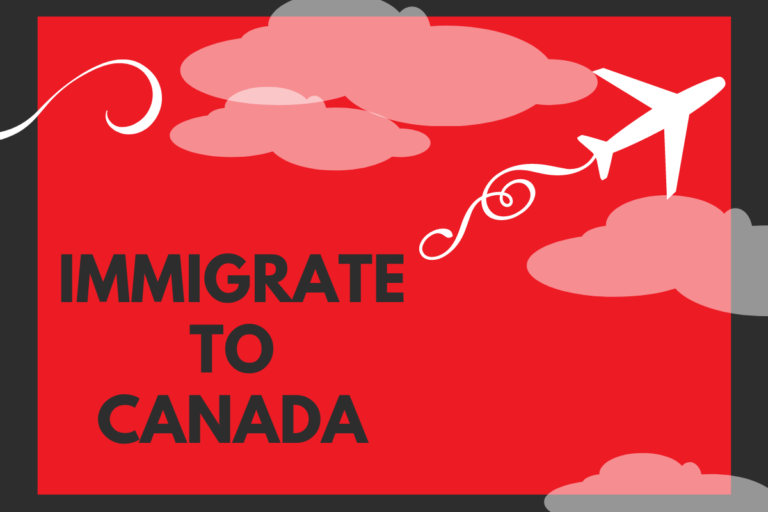Canada Resume Tips to Boost Your Selection
What is a Resume?
A resume is a document that summarizes an individual’s education, work experience, skills, and achievements relevant to the job they are applying for. It is a marketing tool used by job seekers to showcase their qualifications to potential employers. The purpose of a resume is to demonstrate to the employer that the applicant is a strong candidate for the job by highlighting their relevant skills, experience, and accomplishments. A well-crafted resume should be concise, easy to read, and tailored to the job description and requirements. A typical resume includes a summary or objective statement, education, work experience, skills, and relevant achievements or awards.
5 Tips to Boost Your Resume
Here are five tips to boost your resume:
- Tailor your resume to the job: Customize your resume to the specific job you are applying for by highlighting the skills, experience, and accomplishments that are most relevant to the position. Carefully review the job description and make sure your resume clearly demonstrates how you meet the qualifications and requirements.
- Use strong action verbs: Use action verbs to describe your accomplishments and responsibilities. Strong action verbs such as “managed,” “created,” “implemented,” and “delivered” convey a sense of initiative and accomplishment. Avoid passive language like “responsible for” and instead use active language to demonstrate your impact.
- Quantify your achievements: Whenever possible, include quantifiable data to demonstrate the impact of your work. Use numbers, percentages, and dollar amounts to showcase your accomplishments and make them more tangible.
- Keep it concise and easy to read: Your resume should be easy to read and well-organized. Use bullet points to break up large blocks of text and keep your sentences concise. Stick to one or two pages, and use clear headings and subheadings to make it easy for the reader to quickly scan and find relevant information.
- Highlight your soft skills: In addition to technical skills, soft skills like communication, teamwork, and problem-solving are also important to employers. Make sure to highlight these skills and provide examples of how you have used them in previous roles. Consider including a section dedicated to your skills or adding them to your summary statement.
What to Include in Your Canada Resume?
When creating a resume in Canada, it is important to include the following sections and information:
- Contact Information: Include your name, address, phone number, and email address at the top of your resume.
- Profile or Objective Statement: This should be a brief summary of your skills and experience, tailored to the job you are applying for.
- Education: List your highest level of education, including the degree or diploma earned, the institution, and the date of graduation.
- Work Experience: List your work experience in reverse chronological order, starting with your most recent job. Include the job title, the name of the company, dates of employment, and a brief description of your responsibilities and accomplishments.
- Skills: Include a section that highlights your relevant skills, such as technical skills, and language proficiency, and soft skills like communication and teamwork.
- Certifications and Licenses: If you have any relevant certifications or licenses, list them along with the issuing organization and the date earned.
- References: It is not necessary to include references on your resume, but you should have a list of professional references available upon request.
In addition to the above sections, make sure your resume is well-organized, easy to read, and tailored to the specific job you are applying for. Use clear headings and bullet points to make it easy for the reader to scan and find relevant information. Finally, proofread your resume carefully to ensure it is free of errors and typos.
Why is a Cover Letter Important?
A cover letter is an important component of a job application for several reasons:
- Introduces you to the employer: A cover letter is an opportunity to introduce yourself and explain why you are interested in the job and how your qualifications align with the position.
- Highlights your qualifications: A cover letter allows you to expand on the information provided in your resume and highlight specific qualifications, experiences, and achievements that are relevant to the job.
- Demonstrates your writing skills: A well-written cover letter demonstrates your communication and writing skills, which are important in many roles.
- Shows your enthusiasm and interest: A well-crafted cover letter can show your enthusiasm and interest in the company and position, which can set you apart from other applicants.
- Addresses any gaps or concerns: If you have any gaps in your resume or concerns that may be a red flag for employers, a cover letter is an opportunity to address these issues and explain any extenuating circumstances.
Overall, a cover letter is an important tool to help you stand out from other applicants and demonstrate your interest and qualifications for the job. It allows you to showcase your personality and enthusiasm for the role, which can help you make a positive impression on the employer.
Here is a sample Cover Letter for your reference
Dear Hiring Manager,
I am writing to express my strong interest in the Marketing Coordinator position at XYZ Company. With over three years of experience in marketing and a Bachelor’s degree in Marketing from ABC University, I believe I have the skills and qualifications necessary to excel in this role.
In my current role as a Marketing Assistant at DEF Corporation, I have gained experience in social media management, content creation, and event planning. I have also assisted with market research and data analysis, helping to inform strategic marketing decisions. Through these experiences, I have developed strong communication, organizational, and project management skills, which I believe would be valuable in the Marketing Coordinator role.
In addition to my experience, I am highly motivated and passionate about marketing. I am always seeking to learn and stay up-to-date on the latest marketing trends and techniques. I am confident that I can contribute to the success of XYZ Company and help to drive its marketing efforts forward.
Thank you for considering my application. I look forward to the opportunity to discuss my qualifications further.
Sincerely, [Your Name]
What NOT to Include in a Canada Resume?
When creating a resume in Canada, it is important to avoid including certain information that could be considered inappropriate or irrelevant. Here are some things to avoid including in your Canada resume:
- Personal Information: It is not necessary to include personal information such as your age, marital status, or religious affiliation on your resume. This information is not relevant to your qualifications for the job and could potentially be used to discriminate against you.
- Photos: Do not include a photo of yourself on your resume. In Canada, it is generally considered inappropriate to include a photo on a resume, as it could also be used to discriminate against you.
- Irrelevant Work Experience: If you have work experience that is not relevant to the job you are applying for, you may want to consider leaving it off your resume. Focus on highlighting the experiences and qualifications that are most relevant to the job.
- Salary Information: It is not necessary to include salary information on your resume. This information can be discussed during the interview process.
- Negative Information: Avoid including any negative information about previous employers, coworkers, or experiences. This can create a negative impression and may be seen as unprofessional.
Overall, it is important to keep your resume focused on your qualifications for the job and avoid including any irrelevant or inappropriate information. Make sure your resume is well-organized, easy to read, and tailored to the specific job you are applying for.
Types of Resume Format Used in Canada
There are three common types of resume formats used in Canada:
- Chronological Resume: This is the most common type of resume format, which lists your work experience in reverse chronological order, starting with your most recent job. This format emphasizes your work history and highlights your career progression.
- Functional Resume: A functional resume format focuses on your skills and accomplishments rather than your work history. It highlights your relevant skills and experiences, organized by skill category. This format is often used by job seekers who have gaps in their employment history, are changing careers, or have limited work experience.
- Combination Resume: A combination resume format combines elements of both the chronological and functional resume formats. It highlights your work history, while also emphasizing your skills and accomplishments. This format is often used by job seekers with a strong work history and diverse skill sets.
Overall, the choice of resume format will depend on your individual situation and the type of job you are applying for. It is important to choose a format that highlights your strengths and is tailored to the specific job you are applying for.




